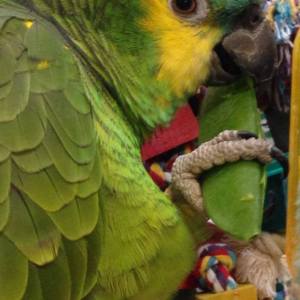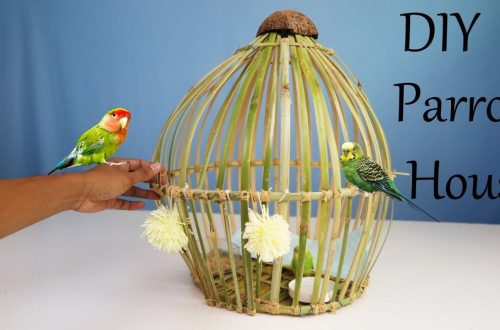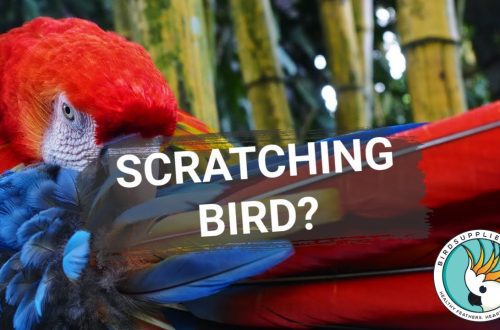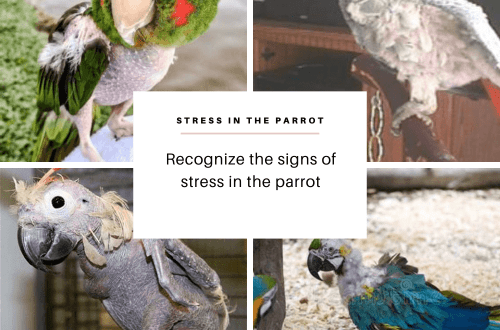
5 reasons why you shouldn’t have a large parrot
We discussed with the veterinarian who the macaw and cockatoo are suitable for, and who should think about another pet. At the end of the article, a small test – check yourself.
Large parrots in the house are the joy of communication and personal tropics every day. Even in the grayest winter and autumn with such a riot of flowers, you will not get bored! But if you are just looking to get a cockatoo or macaw, we recommend that you take a look at our list. It listed 5 situations when instead of a large parrot it is better to opt for another pet.
- If you love silence
Do you work or study remotely and communicate a lot online? Does the soundproofing in your home leave much to be desired? Parrots do not care, screams and loud singing are their natural need. Every self-respecting cockatoo or macaw considers it his duty to clear his throat at least twice a day and remind everyone around that he lives in this territory. If you try to reason with a feathered vocalist, nothing good will come of it.
Large parrots do not always perfectly imitate human speech, but all of them, without exception, love to sing and shout. Making yourself such a friend, you need to mentally prepare for a noisy accompaniment – and sometimes even a night one!
- If you are rarely at home
Large parrots are true companions and friends. These intelligent birds need daily companionship and food for thought. They can’t stand being alone. If you are often not at home, a parrot locked in a cage will constantly call you, scream, demand attention.
Boredom is the main enemy of the feathered intellectual. In the absence of entertaining games and communication with the owner, the parrots yearn, scream and begin to pluck their feathers, and only a good zoopsychologist will help to cope with this ailment.
To avoid loneliness for their ward, many bird lovers give birth to two large parrots at once. Such parrots usually become comrades and companions for life for each other. However, there are more worries about caring for them.
- If you live in a small room
In order for the parrot to feel good and live for a long time, the conditions of detention should be as close as possible to natural ones. This means that you have to recreate the atmosphere of the rainforest for your pet. You will need a lot of decorations, a thermometer, an air purifier and humidifier, and most importantly, a place to fly and perches so that the parrot can “take a break” on them. Organizing all this in a compact studio can be problematic.
The ideal option is to live with a parrot in a private house in nature, where you can build a spacious aviary in the yard. Most city apartments are poorly adapted for large parrot flights. This limitation can be decisive in the question of whether it is worth having a large feathered friend at all.
Not a single cage is able to satisfy the needs of a bird in movement. A parrot needs not just to sit in a cage, but to flutter freely in a spacious room or aviary.
- If you have small children or pets
Large parrots look very friendly, but they have a very strong beak that can become a formidable weapon. Therefore, children, unfamiliar people and other pets should not get too close to a large parrot. If you want to chat, then only under the control of the owner.
The neighborhood of a large parrot with a small child, puppy or kitten is best avoided. Out of curiosity, they can get very close to the parrot, and the parrot may not like it. A meeting with a huge feathered beak threatens with serious injury.
- If you can’t stand the mess
Fans of perfect cleanliness in the house will find it difficult to get along with large parrots. After all, scattering husks, shells, pieces of branches throughout the room during a meal is their favorite pastime. Parrot owners consider cage cleaning part of their daily routine. Parrots go to the toilet several times a day, and they do this, including during flights and walks around the house. One more thing to clean up.
In addition, parrots love to clean their feathers. During this procedure, fluff and feathers scatter throughout the house. In some large parrots – for example, gray and cockatoo – the feather is covered with a thin layer of special powder, which also scatters and covers furniture and other surfaces in the house. During molting, there will be even more trouble, because the bird completely changes the old plumage to fresh and beautiful.
We are sure that patience and love for your ward will help to overcome any trials. But it is better to read about the pitfalls and prepare for them long before you go after the bird. The best thing is to talk in advance with the parrot breeder and people who have had the birds of your dreams for several years. If you prepare in advance, unpleasant discoveries will not spoil your joy from communicating with a new family member.
Finally, check yourself. If at least one statement is not about you, maybe it’s better to start, or?





